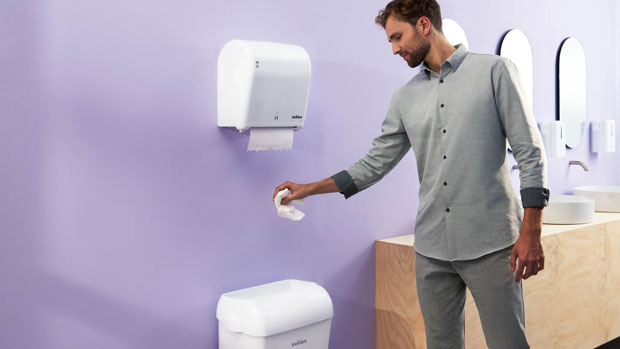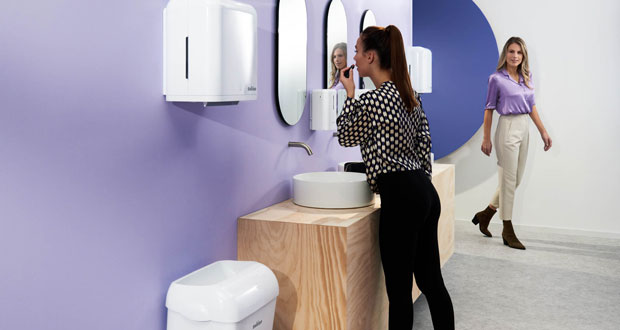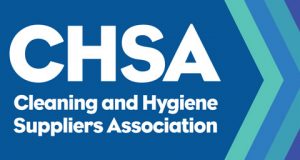We are living in a hygiene hyper-aware society. It’s one where the standards in commercial washrooms and beyond are sky-high, and where low standards can have damaging effects on a business’s reputation. Alasdair Sharp – UKI Sales Manager at Satino by WEPA discusses what exactly that means for companies wanting to keep their competitive edge.
New standards
It’s a turbulent time for businesses. Those recovering from the impact of lockdown are now facing rising energy bills, ambitious sustainability targets and unprecedented recruitment challenges. Having to navigate these challenges alongside the day-to-day running of operations means that it can be easy for hygiene standards to be overlooked.
In a hygiene hyper-aware society, this is a big risk, with people far more conscious of harmful germs and bacteria as a result of the pandemic. The Food Standards Agency found that 80 per cent of participants now wash their hands regularly, with only one per cent reporting that they never do so. This means that standards for customer-facing businesses – from hotels, venues and conference centres to shops and restaurants – are higher than ever before. Therefore, upholding hygiene standards is crucial to achieving customer satisfaction.
If standards aren’t met, the public’s increased awareness and understanding of hygiene principles are now more likely to tarnish a business’s reputation. According to recently conducted governmental studies, 48 per cent of people would not return to a venue with inadequate hygiene measures, while 40 per cent reported encountering unsatisfactory handwashing facilities in the past two years. This shows that first impressions really do count.
Look, don’t touch
So, what are the ways to achieve reputation-affirming hygiene standards? With 80 per cent of infections passed on through touch, coupled with poor hand hygiene, quality touch-free solutions are your saviours.
Touch-free solutions come in various forms, including sanitisers, soap, and tissue dispensers. Installing these can help maintain a high level of cleanliness, whilst minimising the likelihood of active bacteria in your washroom and beyond. By implementing modern hygiene solutions, you can show your customers that you are continually updating and improving your hygiene services.
There are also economic benefits to touch-free dispensers. The amount they dispense isn’t user-operated, meaning they consistently dispense a controlled amount. This prolongs the need for refills, avoiding the risk of customers finding empty bottles when they come to wash their hands, as well as cutting down on supply and labour costs. When the time does come to refill, opting for dispensers that use recyclable bottles reinforces your environmental credentials to your customers.

In sight, out of mind
Away from washrooms, the simple presence of sanitiser stations, at entrances and other areas with high footfall, helps customers to feel safe and showcases that the business cares about the health and hygiene of its customers and staff. At the same time, the presence of sanitisers actively encourages customers to carry out hand hygiene behaviours, when they may not have done so automatically.
There is evidence to suggest that customers have become aware of the increase in hygiene stations – and a lack of in other cases. That increased awareness is making the absence of these key hygiene stations even more glaring for customers. The Food Standards Agency found that, in April 2020, 96 per cent of people said they frequently washed their hands to protect themselves from the spread of infections. One year later, whilst that figure dropped by three per cent, it still represented a high proportion of people. Therefore, it’s likely that the majority of people do not expect the standards of the businesses that they visit to drop either.
Maintaining the presence and upkeep of sanitisers can go a long way towards easing hygiene anxiety. Brandwatch has revealed that 63 per cent of people believe it’s very important for businesses to take action against coronavirus, including 58 per cent of those believing it is businesses who should supply hand sanitiser, rather than its customers. Those who drop to pre-pandemic standards by removing sanitising stations consequently run the risk of damaging their reputation and harming customer experience.
Out of their hands
Many businesses simply do not have time to focus on hygiene standards. In these instances, confiding in a hygiene specialist can represent a valuable and viable solution. Bringing in experts who understand the dynamics of hygiene, with an in-depth knowledge of the products available and the best way to implement them, helps to deliver high standards without taking focus away from the day-to-day operations of your company.
An effective hygiene consultant will provide assurance that standards are met, without breaking the bank. Their knowledge of the latest sustainability advancements also helps ensure that you are opting for solutions with low carbon emissions, that are energy-efficient and planet friendly. From recycled tissue papers to plastic-free soaps and beyond, the industry is changing, and consultants have their finger on the ecological pulse, meaning they can pass on their expertise to businesses.
We all understand the importance of keeping your doors open, but research has shown that can’t be done at the expense of your hygiene standards. It is vital that businesses understand and acknowledge the change in customer mindset when it comes to hygiene, and the impact that letting standards slip has on customer satisfaction. With businesses understandably having to put much of their focus on other matters, hygiene consultants can bridge that gap, striking a best-of-both-worlds balance and ensuring a more hygienic and profitable future for businesses, whilst you focus on what you do best.
To find out more, please click here.





